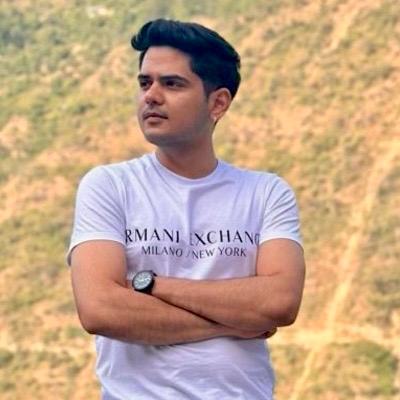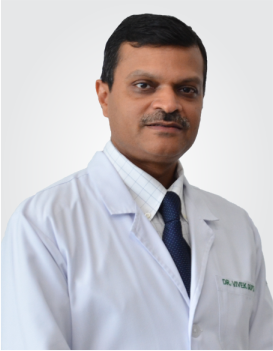By Country
By Department
By Speciality
By Procedure
By Diseases
Best Doctors
- Dr. Surender Kumar Dabas
- Dr. Subodh Chandra Pande
- Dr. Tapan Singh Chauhan
- Dr. Anita Bakshi
- Dr. Kamal Verma
- Dr. Kanchan Kaur
- Dr. Rajeev Agarwal
- Dr. Ashok Kumar Vaid
- Dr. Tejinder Kataria
- Dr. Deepak Sarin
- Dr. Satya Pal Kataria
- Dr. Chandragouda Dodagoudar
- Dr. Kunjahari Medhi
- Dr. Shyam Singh Bisht
- Dr. K V Gangadharan
- Dr. S. Jayalakshmi
- Dr. Biswajyoti Hazarika
- Dr. Manisha Jain
- Dr. Praveen Yadav
- Dr. Jem Kalathil
- Dr. Sandeep Nayak
- Dr. Niti Raizada Narang
- Dr. Monika Pansari
- Dr. Mayuri Rajapurkar
- Dr. Ashok Komaranchath
- Dr. Vivek Belathur
- Dr. Sidharth Sahni
- Dr. Bharath G
- Dr. Amish Chaudhary
- Dr. Ankur Pruthi
- Dr. Hemant B. Tongaonkar
- Dr. Muzammil Shaikh
- Dr. Priya Tiwari
- Dr. Ganesh Nagarajan
- Dr. Mukesh Patekar
- Dr. Anusheel Munshi
- Dr. Peyush Bajpai
- Dr. Anadi Pachaury
- Dr. Durgatosh Pandey
- Dr. Sanjeev Kumar
- Dr. Amit Agarwal
- Dr. Bhawana Saddy Awasthy
- Dr. Senthil Kumar
- Dr. Bhuvan Chugh
- Dr. Amish Vora
- Dr. Preeti Vijayakumaran
- Dr. Vivek Gupta
- Dr. Archit Pandit
- Dr. Deepak Jha
- Dr. Noaline Sinha
- Dr. Sandip Ganguly
- Dr. Bivas Biswas
- Dr. Joydeep Ghosh
- Dr. Susovan Banerjee
- Dr. Deepak Gupta
- Dr. Pratibha Dhiman
- Dr. Dhwanee Thakkar
- Dr. Gopal Kumar
- Dr. Kanika Rana
- Dr. Karan Gupta
- Dr. Kushal Narang
- Dr. Mayur Mayank
- Dr. Shina Goyal
- Dr. Tejasvini Vaid
- Dr. Ankur Nandan Varshney
- Dr. Ruquaya Ahmad Mir
- Dr. Dipanjan Panda
- Dr. P K Das
- Dr. Ramesh Sarin
- Dr. Harsh Dua
- Dr. Ganesh Jadhav
- Dr. Sapna Manocha Verma
- Dr. Neha Rastogi
- Dr. Gagan Gautam
- Dr. Animesh Saha
- Dr. Harit Chaturvedi
- Dr. Rajeev Vijayakumar
- Dr. Mathangi J
- Dr. Govind Eriat
- Dr. Kirankumar Sajjanshetty
- Dr. Amit Dutt Dwary
- Dr. Indranil Ghosh
- Dr. Prabrajya Narayan Mohapatra
- Dr. Karthik K Prasad
- Dr. Amar Nath Ghosh
- Dr. Shiveta Razdan
- Dr. Prasenjit Chatterjee
- Dr. Madhuchanda Kar
- Dr Sharadwat Mukhopadhyay
- Dr. Arun Kumar Giri
- Dr. Saphalta Baghmar
- Dr. Rishabh Kumar
- Dr. Pravas Mishra
- Dr. Prashant Mehta
- Dr. Chanchal Goswami
- Dr. Amita Mahajan
- Dr. Priyanka Singh
- Dr. Sajjan Rajpurohit
- Dr. Gouri Kumar Prusty
- Dr. Indranil Khan
- Dr. Jyotirup Goswami
- Dr. Sanjay Gupta
- Dr. Subhasish Sarker
- Dr. Subrata Saha
- Dr. Syed Hassanujjaman
- Dr. Tanmoy Kumar Mandal
- Dr. Maitreyee Bhattacharya
- Dr. Anil Kumar Anand
- Dr. Ankur BAHL
- Dr. B. Niranjan Naik
- Dr. Nitesh Rohatgi
- Dr. Amal Roy Chaudhoory
- Dr. Manav Suryavanshi
- Dr. Dinesh Balakrishnan
- Dr. Bhaskar Viswanathan
- Dr. Rayaz Ahmed
- Dr. Deepak Kumar Shukla
- Dr. Dinesh Kumar Mangal
- Dr. Lalit Sarma
- Dr. Vijay Yadav
- Dr. Anna Lakshmi S
- Dr. Elvis Peter Joseph
- Dr. Mohammed Basheeruddin Inamdar
- Dr. Mohammed Shahid Ali
- Dr. Neelesh Reddy
- Dr. Satish Kumar A
- Dr. Suraj Manjunath
- Dr. Abhijit Sarkar
- Dr. Sindhu V A
- Dr. Naveen Chandrashekhar
- Dr. Baswantrao Malipatil
- Dr. Rahul S Kanaka
- Dr. Nitin Yashas Murthy
- Dr. Rajshekhar C Jaka
- Dr. Meenu Walia
- Dr. Esha Kaul
- Dr. Gopal Sharma
- Dr. Saravanan Periasamy
- Dr. Subbiah Shanmugam
- Dr. Ravi Shankar P
- Dr. Syed Afroze Hussain
- Dr. Sumana Premkumar
- Dr. V. M. Durai Mavalavan
- Dr. K R Prasanna Kumar
- Dr. Sowrabh Kumar Arora
- Dr. Pawan Gupta
- Dr. Sandeep Batra
- Dr. Dharma Kumar KG
- Dr. Vivek Mangla
- Dr. Gagan Saini
- Dr. Ajit Pai
- Dr. Swarupa Mitra
- Dr. Pushpinder Gulia
- Dr. Santanu Sen
- Dr. Yuvaraja TB
- Dr. Vikas Goswami
- Dr. Krishnaswamy Thirumurthi
- Dr. Lokeshwaran MK
- Dr. Rudresha AH
- Dr. Sampath Kumar MN
- Dr. Shruthi S
- Dr. Rahul Darshan Arora
- Dr. Chandani Vijaykumar Hotwani
- Dr. Kawadu Shivdas Jawade
- Dr. Mukesh Bang
- Dr. Rohit Nayyar
- Dr. Nikhil Agrawal
- Dr. Rajinder Kaur Saggu
- Dr. Swathi Prakash
- Dr. K.R. Gopi
- Dr. Prahlad Yathiraj
- Dr. V. Balasundaram
- Dr. Jagadesh Chandra Bose
- Dr. C. S. Mani
- Dr. (Brig) S. Viswanath
- Dr. J. Jebasingh
- Dr. Keshavarajan G
- Dr. N. Rajesh Kar
- Dr. S. Usha
- Dr. Christopher John
- Dr. Sathish A.
- Dr. M. Janarthinakani
- Dr. Pandian Baskar Rao
- Dr. Suvendu Maji
- Dr. Anthony Vijay Pais
- Dr. Madhusudhan N
- Dr. Mangesh Padmanabha Kamath
- Dr. Niti Raizada
- Dr. Rashi Agrawal
- Dr. Disha Tiwari
- Dr. Sanjeev Arora
- Dr. Amit Sahni
- Dr. Dodul Mondal
- Dr. Kaushal Kishore Yadav
- Dr. Nagender Sharma
- Dr. Aditi Chaturvedi
- Dr. Anshuman Kumar
- Dr. Atul Kumar Srivastava
- Dr. Debashish Chaudhary
- Dr. Deni Gupta
- Dr. Megha Saroha
- Dr. Neerja Gupta
- Dr. Pooja Khullar
- Dr. Raajit Chanana
- Dr. Randeep Singh
- Dr. Ankur Singhal
- Dr. Sumit Gahlawat
- Dr. Jalaj Baxi
- Dr. Rajat Bajaj
- Dr. Sandeep Agarwal
- Dr. Shubham Garg
- Dr. Vinod Raina
- Dr. Vedant Kabra
- Dr. Amit Bhargava
- Dr. Kaustav Talapatra
- Dr. Rajasundaram
- Dr. Kodaganur S. Gopinath
- Dr. Kapil Kumar
- Dr. Rajesh Mistry
- Dr. G Krishna Reddy
- Dr. Ramakrishna Vangara
- Dr. V Dharmendra Kumar
- Dr. Anthony V Pais
- Dr. Sajith Babu T P
- Dr. Bhawana Awasthy
- Prof. (Dr.) Atul Sharma
- Dr. Devavrat Arya
- Dr. Charu Garg
- Dr. Prof Suresh H Advani
Enquire now in case of any assistance needed
 Best Oncology Doctors in Venkateshwar Hospital, Dwaraka, Delhi
Best Oncology Doctors in Venkateshwar Hospital, Dwaraka, Delhi
Looking for the Best Oncology Doctors in Venkateshwar Hospital, Dwaraka, Delhi?
Get a Treatment Plan Within 1 Hour
Author
Doctor of Pharmacy
Dr. Deepanshu Siwach is a skilled clinical pharmacist with a Doctor of Pharmacy degree. He has 4+ years of experience and has worked with thousands of patients. He has been associated with some of the top hospitals, such as Artemis Gurgaon.
View ProfileDr. Deepanshu Siwach is a skilled clinical pharmacist with a Doctor of Pharmacy degree. He has 4+ years of experience and has worked with thousands of patients. He has been associated with some of the top hospitals, such as Artemis Gurgaon....
Reviewer
Dr. Vivek Gupta is an experienced Surgical Oncologist with over 16 years of practice....
Frequently Asked Questions
An oncologist is a doctor who specializes in cancer diagnosis, treatment, and prevention. They may focus on medical treatments (medical oncologists), perform surgeries (surgical oncologists), or use radiation therapy (radiation oncologists).
A medical oncologist treats cancer using medications like chemotherapy, immunotherapy, and targeted therapy. A radiation oncologist uses radiation therapy to kill or shrink cancer cells.
A surgical oncologist specializes in removing tumors and cancerous tissue through surgery.
India is home to many highly qualified oncologists. Some of them are:
Choose an oncologist based on their specialization, experience with your specific cancer type, hospital affiliation, treatment approach, patient reviews, and success rates.
Cancer specialists in India are highly skilled and experienced. The best oncologists in India have over 20-40 years of experience.
Most cancer specialists in India hold advanced degrees in oncology, such as MD or DM. They may also have international certifications and fellowships from prestigious institutions worldwide.
Top oncologists in India treat all major types of cancer, including breast, lung, colorectal, prostate, brain, blood cancers (leukemia, lymphoma), and pediatric cancers. They also treat complex GI cancers, head and neck cancer, liver cancer, gynecological cancer, and skin cancer.
The cost of consulting a top oncologist in India ranges from INR 1,500 to INR 4,000 per visit, though this can vary depending on the hospital and the doctor's experience. Video consultations with the best cancer specialists in India range from INR 2,000 to INR 3,000.
Common diagnostic tests for cancer detection include blood tests, biopsies, imaging tests like PET scans, CT scans, MRI scans, ultrasounds, and genetic testing.
During the initial consultation, the oncologist will review your medical history, discuss symptoms, do a physical examination, and order tests to confirm the diagnosis and develop a treatment plan.
Treatment options for cancer include chemotherapy, surgery, immunotherapy, radiation therapy, targeted therapy, hormone therapy, and, in some cases, stem cell transplants.
Several renowned pediatric oncologists in India treat childhood cancers, such as leukemia, brain tumors, neuroblastoma, and Wilms' tumors.
India's top oncologists use cutting-edge techniques such as immunotherapy, CAR T-cell therapy, targeted therapy, Gamma Knife radiosurgery, CyberKnife, proton therapy, Tomotherapy, and robotic-assisted surgeries for precise and effective treatment.
Many top oncologists in India perform minimally invasive robotic surgeries with faster patient recovery times.
Success rates depend on the type and stage of cancer. Still, surgeries performed by the best oncologists in India generally have high success rates (up to 95%), especially for early-stage cancers.
Common side effects of cancer treatment include hair loss, pain, fatigue, nausea, weakened immune system, and digestive issues.
Yes, top oncologists provide comprehensive care to manage side effects, including medications, nutritional support, physical therapy, and counseling to help cancer patients cope with the challenges of treatment.
For minimally invasive cancer surgeries, patients are allowed to go home within 2-4 days after the surgery if there are no postop complications. Complete recovery may take a few weeks, while more complex surgeries may require a few months.
Post-operative care and support services include monitoring for complications, managing pain, wound care, physiotherapy, nutritional support, psychological counseling, rehabilitation, regular follow-ups to check for recurrence, and support groups for patients and their families.



